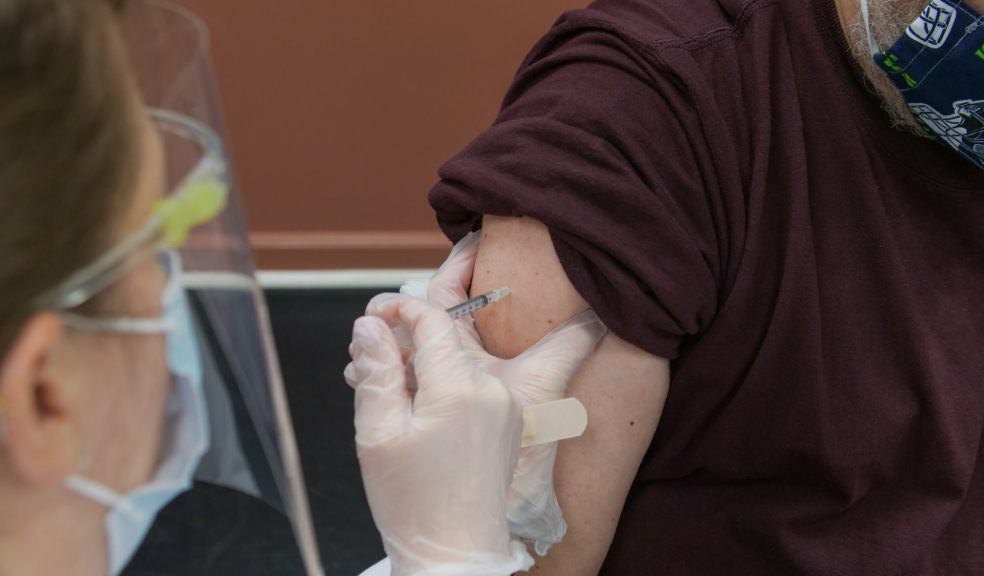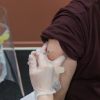
World-first COVID-19 vaccine booster study launches in Exeter
Volunteers from Exeter and the surrounding areas will soon be able to receive a third ‘booster’ COVID-19 vaccine through a new clinical trial launching this week, the Health Secretary has announced.
The Cov-Boost study, backed by £19.3 million of government funding through the Vaccines Taskforce, will be run at Royal Devon and Exeter NHS Foundation Trust and is being led by University Hospital Southampton NHS Foundation Trust. It will be the first in the world to provide vital data on the impact of a third dose on patients’ immune responses.
It will give scientists from around the world and the experts behind the UK’s COVID-19 vaccination programme a better idea of how effective a booster of each vaccine is in protecting the individual from the virus.
The initial findings, expected in September, will help inform decisions by the Joint Committee on Vaccination and Immunisation (JCVI) on any potential booster programme from autumn this year, ensuring the country’s most vulnerable are given the strongest possible protection over the winter period.
The trial will look at seven different COVID-19 vaccines as potential boosters, given at least 10 to 12 weeks after a second dose as part of the ongoing vaccination programme. One booster will be provided to each volunteer and could be a different brand to the one they were originally vaccinated with. Vaccines being trialled include Oxford/AstraZeneca, Pfizer/BioNTech, Moderna, Novavax, Valneva, Janssen and Curevac, as well as a control group. The trial has received ethics approval by the NHS Research Ethics Committee, as well as approval from the Medicines and Healthcare products Regulatory Agency.
The study will be recruiting participants through the NHS COVID-19 Vaccine Research Registry, with vaccinations set to start from the beginning of June.
Participants will be adults aged 30 years or older and will include those immunised early on in the vaccination programme - for example, adults aged 75 and over or health and care workers.
The study will take place at 16 NIHR-supported sites across the UK, and will include a total of 2,886 patients. All participants will be monitored throughout the study for any potential side effects and will have bloods taken to measure their immune responses at days 28, 84, 308 and 365, with a small number having additional blood tests at other times. All sites will have an electronic diary for all participants that will send alerts to the team in real time if needed and a 24-hour emergency phone to a doctor on the study, who can provide further clinical advice.
All the trial sites are working on ways of including people in research from a wide variety of backgrounds and individuals from ethnic minorities are encouraged to apply.
The government is preparing for a potential booster programme based on clinical need and will publish further details in due course. The final policy will be informed by advice from the JCVI and take into account the results of clinical trials.
Dr Ray Sheridan, Consultant Physician at Royal Devon and Exeter NHS Foundation Trust, who will lead the study locally, said: “Vaccines have been shown to be effective against SARS CoV-19. We don’t yet know if a booster 3rd jab against COVID-19 will be needed this Autumn or not. This study will help answer that. It will also guide which of the available vaccines, as well as new ones coming, will be useful for this 3rd jab. We are looking for NHS staff who were vaccinated in December and January, as well as members of public in older age groups, who were also vaccinated in that initial wave. The Royal Devon and Exeter Hospital research team and our local NIHR colleagues are excited to be selected as one of 12 UK sites to run this study which will help guide what the UK’s vaccine strategy will be this Autumn. If you are interested in getting involved please email us on rde-tr.cov-boost@nhs.net”
Professor Saul Faust, Chief Investigator and Director of NIHR Southampton Clinical Research Facility, said: “This trial will give the Joint Committee on Vaccination and Immunisation the important data to inform their recommendations of how to protect the population against any future wave.
“It is fantastic that so many people across the country have taken part in vaccine trials up to now so that we can be in a position to study the effects of boosters, and we hope that as many people as possible over the age of 30 who received their first dose early in the NHS programme will be able to take part.”
Rt Hon Matt Hancock MP, Health and Social Care Secretary, said: “We will do everything we can to future-proof this country from pandemics and other threats to our health security, and the data from this world-first clinical trial will help shape the plans for our booster programme later this year.
“I urge everyone who has had both doses of a COVID-19 vaccine, and is eligible, to sign up for this study and play a part in protecting the most vulnerable people in this country and around the world for months and years to come.”
Professor Andrew Ustianowski, National Clinical Lead for the UK NIHR COVID Vaccine Research Programme said: "Throughout the pandemic, the National Institute for Health Research, the NHS and all of our research partners have helped to rollout vital studies to help us learn how to treat COVID-19 and develop effective vaccines. The Cov-Boost study marks the next step forward in our efforts of understanding how to best protect the population and inform future vaccine booster programmes.
"Since the launch of the NHS COVID-19 Vaccine Research Registry, thousands of volunteers have been recruited to key vaccine studies, and we are confident we can call upon our nearly half a million strong community to help recruitment to this important trial."
Minister for COVID-19 Vaccine Deployment Nadhim Zahawi said: “Having taken part in a COVID-19 vaccine clinical trial myself, I would encourage everyone eligible to volunteer – whatever your religion, ethnicity or background, it’s a fantastic opportunity to get involved with such an historic initiative.”













